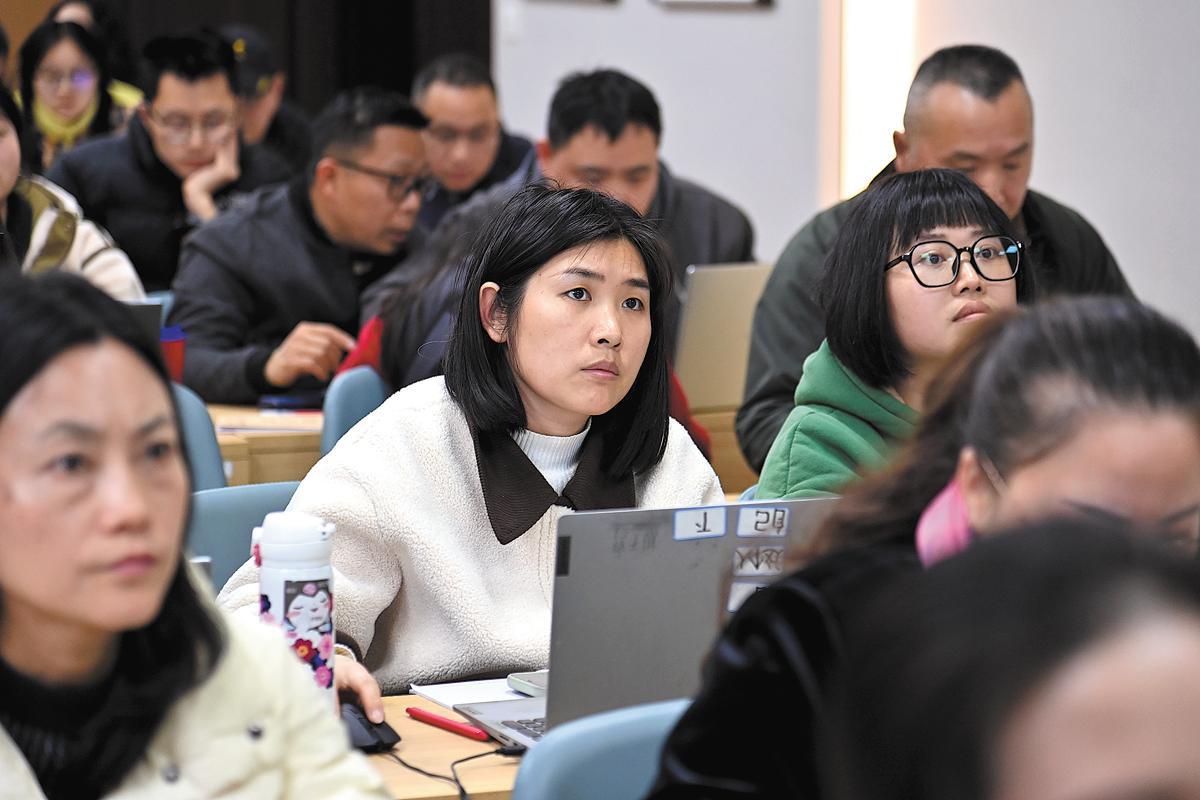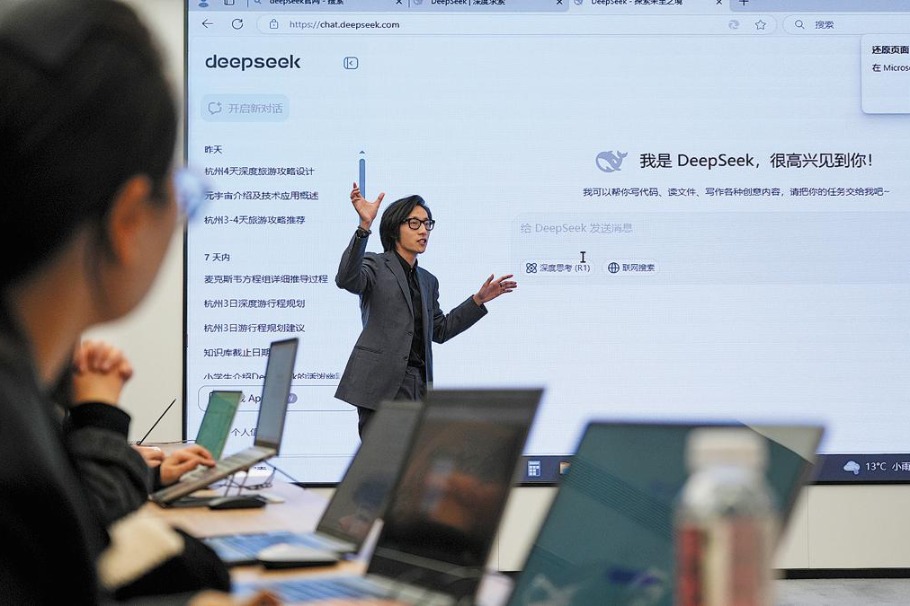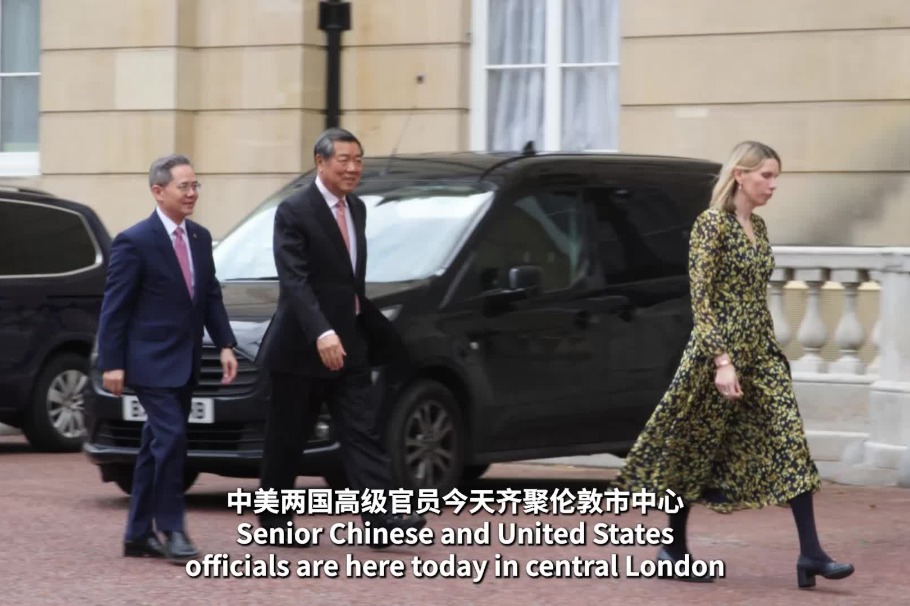Rush to enroll in AI classes as demand for talent grows
Transformation of careers, industries sees surge in training in Shenzhen


Fully booked
Launched in August last year, the school has organized over 120 AI training courses so far this year, with close to 3,000 attendees. "Roughly 10 percent of these people have found jobs or set up their own business after attending the courses," Zhao said.
The school has 10 AI tutors, with two working full-time.
Some are professors, while others are veterans in the sphere of technology. The courses cover a range of subjects powered by AI, including short-video shooting and editing, marketing, image design, microdrama production and jewelry design.
Free courses account for about 60 percent of total courses, while the remainder are designed for broad accessibility. "For those 40 percent of paid courses, the tuition is only 30 percent of (the usual) market price," Zhao said.
The Shenzhen Federation of Trade Unions is also conducting community-oriented training programs, designed to help workers improve their skills and empower the transformation of enterprises.
The first AI courses began in May, focusing on new media operations, office operations and short-video livestreaming. The federation has also launched courses on humanoid robot applications, along with skills competitions for AI tutors and industrial robots, all aimed at addressing the training needs of workers.
In mid-May, Zhou Guihang, an information technology teacher at the Shenzhen No 3 Vocational School of Technology, began teaching about AI large language models every Sunday.
Students learn how to apply these models in their respective sectors, such as enhancing navigation services for tourist attractions and shopping malls, streamlining payroll processes for companies and improving community services.
Although the training is held all day on Sundays, the students have maintained a high level of enthusiasm for the classes.
All of the AI-related training courses are fully booked, and participants usually only request leave when they cannot attend due to business trips, Zhou said. Many often stay after class to ask questions.
Zhou believes that the rapid evolution of information technology will phase out those who can't keep up. The study of AI, which helps employees stretch their capabilities, is vital for the future of enterprises.
"For companies, key turning points often arise from a few opportunities. By effectively utilizing AI technology, employees can drive significant productivity gains and cost savings. Without this knowledge, companies may be stuck in traditional workflows," he said.
AI has also lowered the threshold for learning complex information technology, enabling those from non-technical backgrounds to write simple programs and address specific challenges in their work, Zhou said.
The widespread application of AI will ultimately drive the development of the technology itself, helping the country achieve technological self-reliance and maintain long-term competitiveness, he added.
According to the World Economic Forum's Future of Jobs Report 2025, as many as 86 percent of employers believe their business will be transformed by AI and information-processing technologies by 2030.
The findings of the report are based on a survey of over 1,000 global employers across 22 industries and 55 economies, which collectively employ over 14 million workers.
Half of the employers surveyed said they planned to re-orient their business in response to AI, while two-thirds expressed their intention to hire talent with specific AI skills. Forty percent said they expected to reduce their workforce where AI can automate tasks.
The AI revolution is expected to exert a significant impact on jobs, fueling a demand for technology-related skills, the report said. Technology-related jobs are projected to be the fastest growing roles in percentage terms, including big data specialists, fintech engineers, AI and machine learning specialists, and software and application developers.























